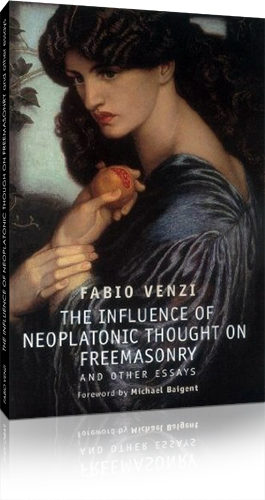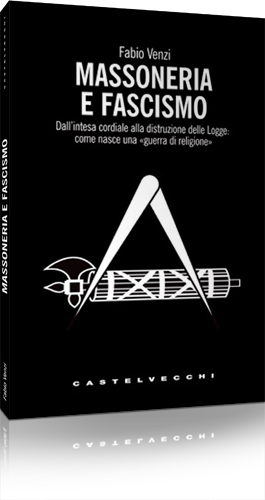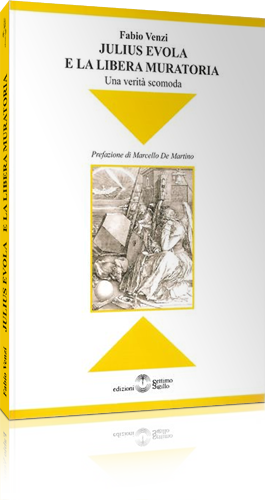Publications
 |
Fabio Venzi
Studies on Traditional FreemasonryRome, 2012 344 pages ISBN: 9788871692647 |
|
|
from the preface of Mariano Bianca Masonry, or Freemasonry, even today, nearly 300 years after its foundation in modern times, has three key questions: a) what is its historical origin?, B) what kind of institution?, C) which are its goals? The essay by Fabio Venzi aims to answer these questions with careful and rigorous analysis of historical and Masonic documents. From the point of view of the origins, Venzi examines many documents, particularly those ones belonging to Anglo-Saxon culture, and from these ones it appears that the modern Foundation of the Speculative Masonry competed several factors, the fundamental was the Neo-Platonism with all its philosophical currents. Freemasonry, however, presents itself as a continuation of esoteric initiatory Tradition of the West. In this sense, then, the author says that Freemasonry is a Traditional Association whose nature is esoteric and related to initiation. For this reason it contains symbols and rituals that follow various esoteric currents, including, in particular, Hermeticism, Kabbala, Alchemy and the Rosicrucians; symbolic allusions that also refer to the Mysteries of Ancient Greece. The main aims of Freemasonry, then, are those specific to each esoteric association related to initiation, which aims at the improvement of knowledge, ethical and metaphysical, of each initiate. |
 |
Fabio Venzi
The Influence of Neoplatonic Thought on FreemasonryBrighton, 2007 XV and 106pp ISBN: 978-1-84624-096 |
|
|
su Freemasonry Today, organo ufficiale dell' UGLE, una prestigiosa recensione di Matthew Scanlan. This is a thought-provoking and stimulating book, not least because as it was written by the current Grand Master of the Regular Grand Lodge of Italy. It comprises six chapters or essays which focus on topics of obvious interest to the author. The subjects explored include an examination of the ideas underpinning modern Freemasonry, the Italian Fascist's attack on the craft during the 1920s and Freemasonry's role in today's world, both as an ethical force - and what Venzi terms, society's moral observatory. |
||
|
All in all, I would certainly recommend this book to anyone who is interested in the history of ideas, and especially in reading two fascinating essays on the calamitous feud between Italian Freemasonry and Fascism. And while it may be said that Freemasonry was attacked and banned by all the totalitarian regimes of the twentieth-century, the regimes most virulently hostile to the association were undoubtedly those of a Fascist hue; as for three centuries Freemasonry has championed ideals that lie at the heart a true Democracy, namely liberty of conscience and tolerance, ideals that have no place in an authoritarian state. |
||
 |
Fabio Venzi
Freemasonry and FascismRome, 2008 180 pages ISBN: 887615229 |
|
| back cover What kind of relationship existed between the fascist movement and Freemasonry? For fifteen years, Fascism and Freemasonry studied each other at close range, and it could happen that many famous people had double affiliation (even Farinacci, Julius Evola, and many others). But Fascism wanted to become a Regime, and then in a State Religion. They began to speak of Fascist Mysticism, Doctrine, and Mussolini proclaimed himself the High Priest of the Italians. And Freemasonry, that had created the State through the Risorgimento, could not accept it. Fabio Venzi recreates, thanks to documents and testimonies, the behind-the-scenes activities that led Fascism to stiffen and to ban Freemasonry, up to actively persecute it, in a non-random coincidence of timing with the rise of anti-Semitism and racial laws. |
 |
Fabio Venzi
Julius Evola and Freemasonry, an inconvenient truthRome, 2010 128 pages ISBN: 978-88-6148-081-0 |
|
| reviewed by Giovanni Sessa, Julis Evola Foundation
The author, Grand Master of the Regular Grand Lodge of Italy since 2001, attempts to show, in a documented way, in the central thesis that circulates throughout the book, that Evola articulated negative judgments on the secret society, not as it was repeatedly argued, simply by virtue of an anti-Masonic prejudice. On the contrary, the philosopher turned his criticism mainly to "speculative" Freemasonry originated with the Grand Lodge of London in 1717, under the pressure of modern culture and conditioned by its politicized in a revolutionary way. The traditionalist recognized, in fact, always a constitutive dignity, of the "operative" Freemansonry of the origins, an organization focused on initiation, which had its roots far, none other than in the Collegia Fabrorum of Rome. The "secular" character of the modern Freemasonry invalidated, however, in the opinion of the Roman thinker, the chances of that "virtual" initiation, on which Guenon had placed his hopes, considering it sic et simpliciter preparatory to an "effective" phase of implementation. |
